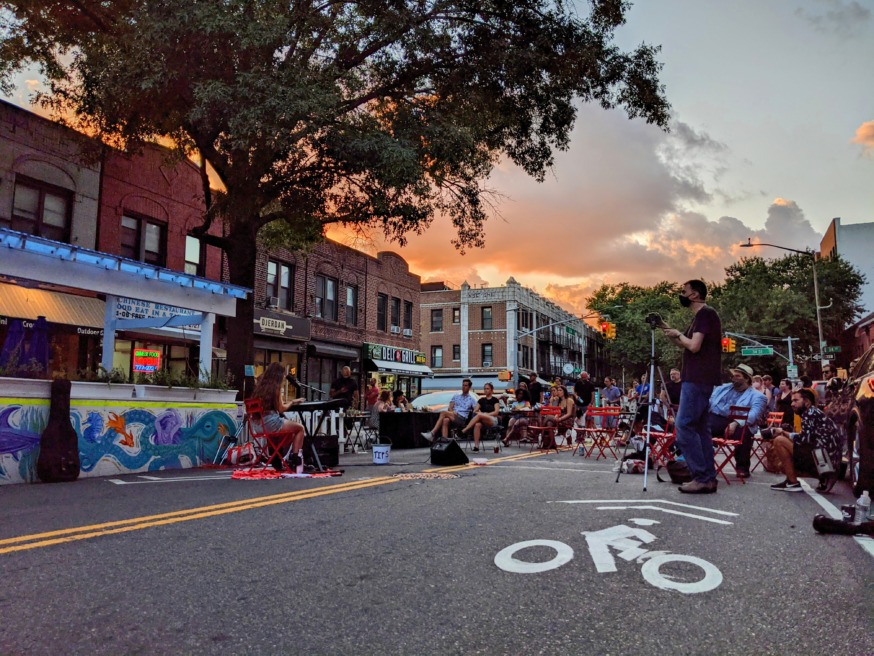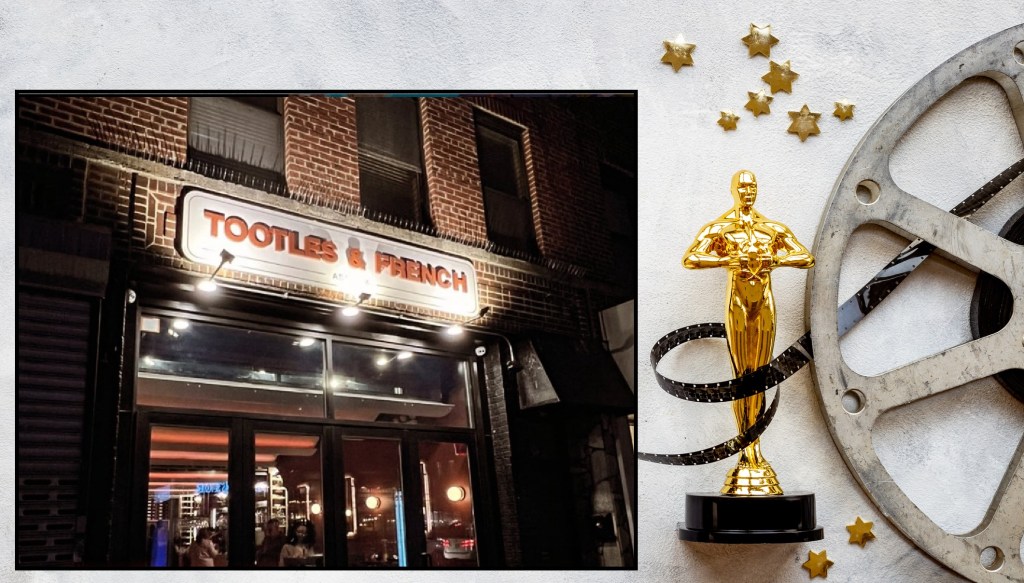Throughout the late 1800s, Long Island City was known as a ‘wide open’ place when it came to gambling –– particularly on horse racing. Long Island was once famous for being prime ‘horse country’ not unlike as Kentucky or Virginia are considered today. Major turf events approached the hype of Super Bowl, World Cup, and World Series all rolled into one weekend. The ferries and beer halls at the ferry raked in large sums from the ‘sporting crowd’ as it swarmed through the community every Saturday and Sunday from morning until dusk.
A news reporter visited some of the poolrooms where ‘pool-sellers’ (who today would be called bookies) made it possible for gamblers to bet on horse races. He vividly described the scene: clerks were figuring and entering odds next to horse names listed on slate chalkboards. Cashiers had a brisk business selling tickets. There was an immense rush of purchasers, from youngsters to the elderly. Each arriving ferryboat from Manhattan swelled the crowd of eager and excited gamblers.
At the end of every race, a little whistle was sounded and the winning horse was announced. The few lucky winners collected their winnings. The losers cursed their bad luck, but were usually back the next day, hoping to retrieve their losses. Gamblers, bankers, merchants, farmers, clerks, salesmen and men in all branches of mercantile business and trade played the pools.
The activity was brazenly out in the open. Responding to criticism from exasperated locals and scathing exposes from national publications as Harpers Magazine, the city fathers would occasionally crack down. Such attempts were short lived as they were feeble and ineffectual. It was widely assumed that the corrupt local officials, from the police to the courts, were on ‘the take.’
The Long Island Star reported one such ‘effort.’
In early July 1882, police chief Captain Anthony Woods was ordered by the Police Commissioners to arrest the pool-sellers. He ignored their order.
At another Police Commission meeting on July 20, Woods was ordered to “fully carry out” the previous order. This time he did. It was a farce. Of the four arrested, one was immediately discharged and the other three went home on bail. A week later, Captain Woods then all but torpedoed the effort by allowing a lowly patrolman, Richard Welsh, to conduct the prosecution. Although Officer Welsh seemed well–intentioned, he did not give the judge sufficient evidence to hold the accused. The officer was not given betting tickets to submit for evidence to the court. The three were released and soon were back at their old haunts.
The Star commented editorially: “Captain Woods has had months in which to secure evidence or perfect arrangements for the arrest of the Hunters Point pool-sellers, and yet in all that time he has done nothing but demonstrate his incapacity and entire unfittedness for the position he holds.”
On July 28, the Police Board yet again ordered Captain Woods to arrest the pool-sellers.
The Star of the August 4th edition reported the results: Captain Woods and the mayor did nothing. Pool-selling in Hunters Point continued with no change. Police Commissioners Williams and Armstrong resigned.






























